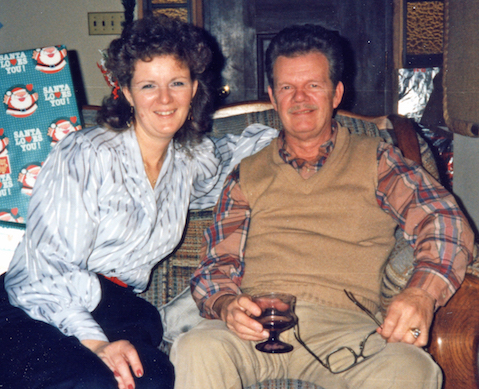Wearing of the Green
History of War and Desperate Migration Repeats Today

One of the last things my dad said to me before he died was, “Don’t forget you’re Irish.” Still, I was perplexed when I awoke from the nightmare of the past election with this sad refrain in my head: “Oh, Paddy dear and did you hear / The news that’s going ’round / The shamrock is forbid by law / To grow on Irish ground.”
Often my dad was dragged from his bed to sing this dark ballad when his parents waxed nostalgic about their homeland. “It’s the most distressful country / That ever you have seen,” the song goes. “They’re hanging men and women there / For wearing of the green.” By then, a revolution had torn the country apart.
On that disorienting November morning last year, I thought, We didn’t come here for this. The immigrant narratives we tell from the past are about survival and seeking a better life. But leaving home was a desperate choice for my family and for others before and after them who endured dreadful hardships. After emigrating, my grandmother went home to give birth but had to labor in the dark, unable to cry out because British mercenaries were just outside the door. Her infant was just six weeks old when they departed, and she never returned.
As we revel in our real and imagined Irish heritage this month, it’s easy to forget that a few generations ago when Irish immigrants arrived, they were not celebrated. Instead, they were depicted as terrorists: violently radical and prone to criminality. Portrayed as subhuman and dangerous, they had trouble finding jobs and were distrusted because they dressed and spoke differently. Even their Catholic religion was viewed as a threat to democracy.
I first heard “No Irish Need Apply” not from a history lesson but from family lore. Yet, a post on my cousin’s Facebook feed complains that veterans are not getting their fair share because immigrants are receiving resources instead. This falsehood has been perpetuated by the current administration and congressional Republicans, creating a false equivalency that sets one group against another. It’s disconcerting to hear the fear, hatred, and racist propaganda that the Know Nothing Party spewed about the Irish now coming out of the mouths of the great-grandchildren of the same people who were demonized not so long ago.
It’s easy to fall back on our fear-based reactions to the “other.” But we can respond differently. A start would be to remember where we come from and who we are as Americans, to remember the many contributions made by those who came before us. In spite of prejudice and discrimination, poverty and repression, our immigrant family members made bitter sacrifices to provide us with the gift of U.S. citizenship, so we have an obligation to honor them. We have an obligation to investigate the truthfulness of claims that incite fear and opposition — an obligation to consider who benefits from pitting us against one another.
Intimidation and ruthlessness may make us feel powerful in the short term. But compassion delivers in the end because it provides us with the resilience we need as individuals and communities in challenging times. It’s what causes us to help others daily, to deal with illness, to recover from natural disasters, to deal with personal and neighborhood tragedies. “Compassion is not religious business, it is human business,” the Dalai Lama says. “It is not luxury, it is essential for our own peace and mental stability, it is essential for human survival.”
It takes imagination and empathy to begin. So whether you’re wearing green or drinking beer on St. Patrick’s Day — whether you’re of Irish descent or not — try this: Picture what your life might be if your family had succumbed to threats and intimidation — if your family had not persisted — if your family had been turned back. Then think again before you tell me how we should respond to families seeking refuge.



